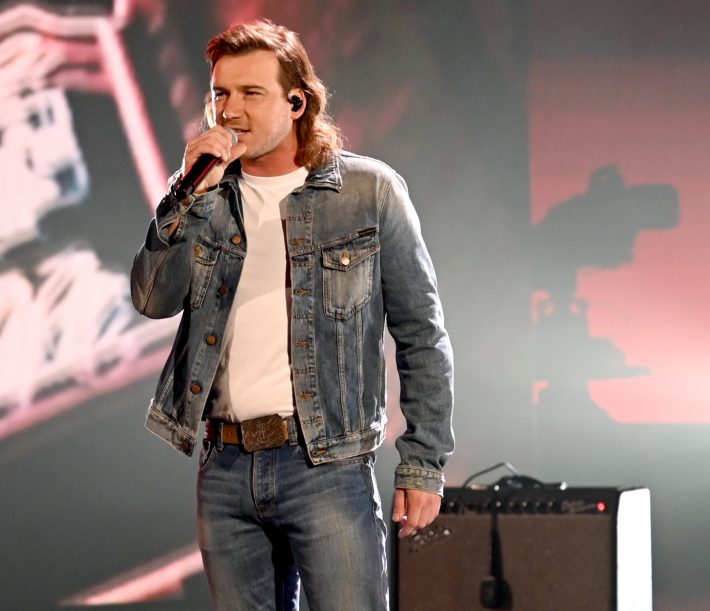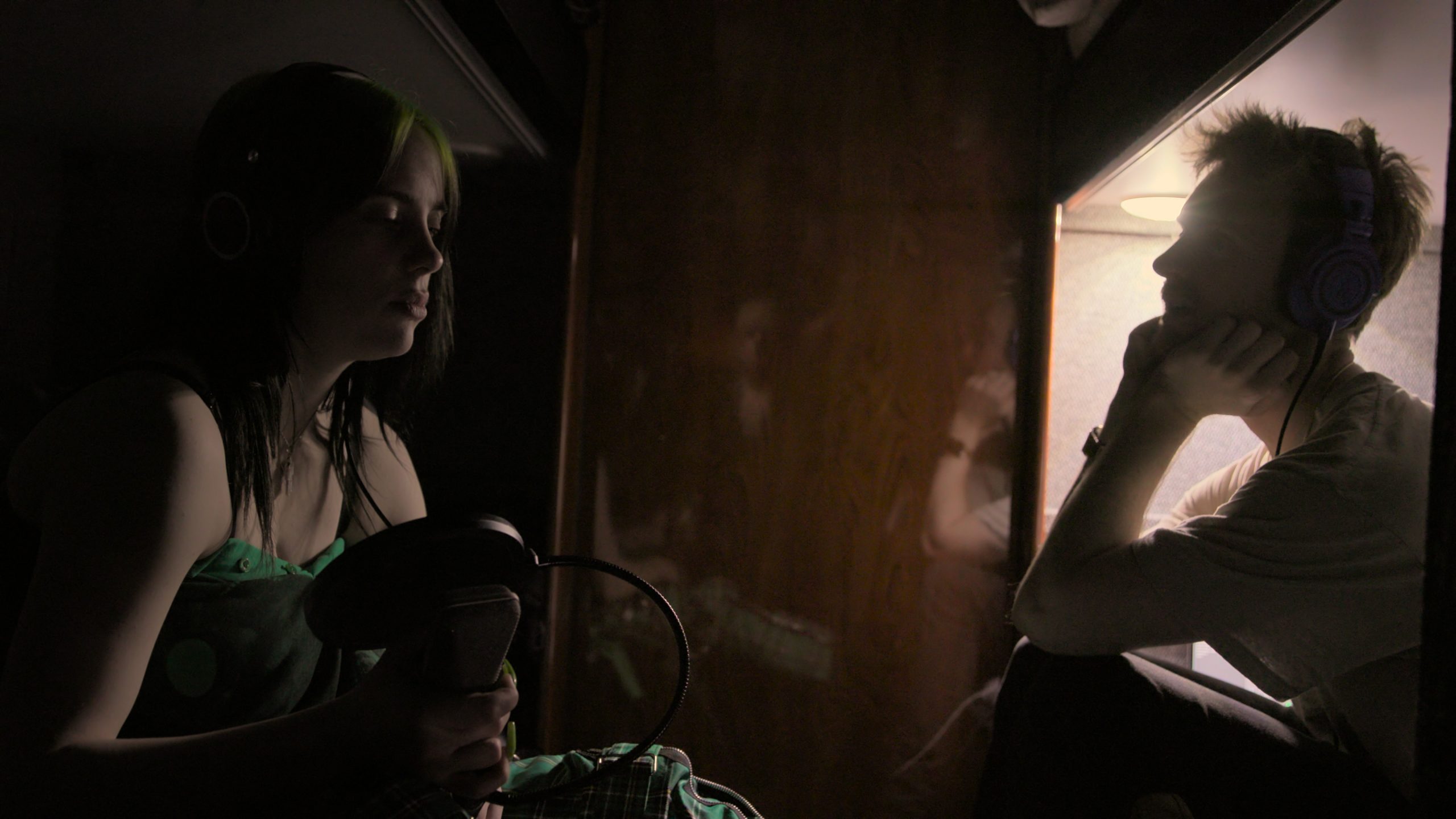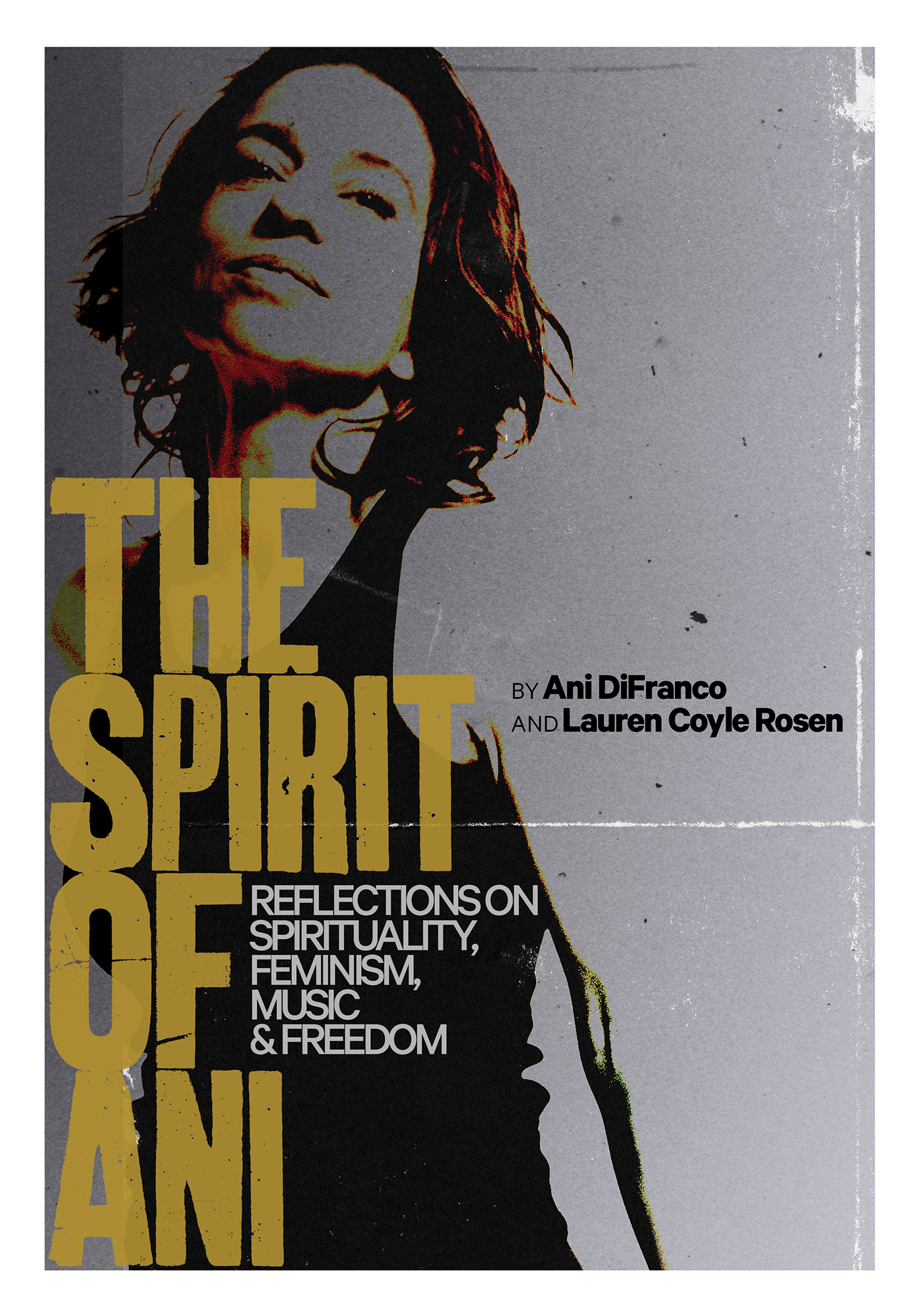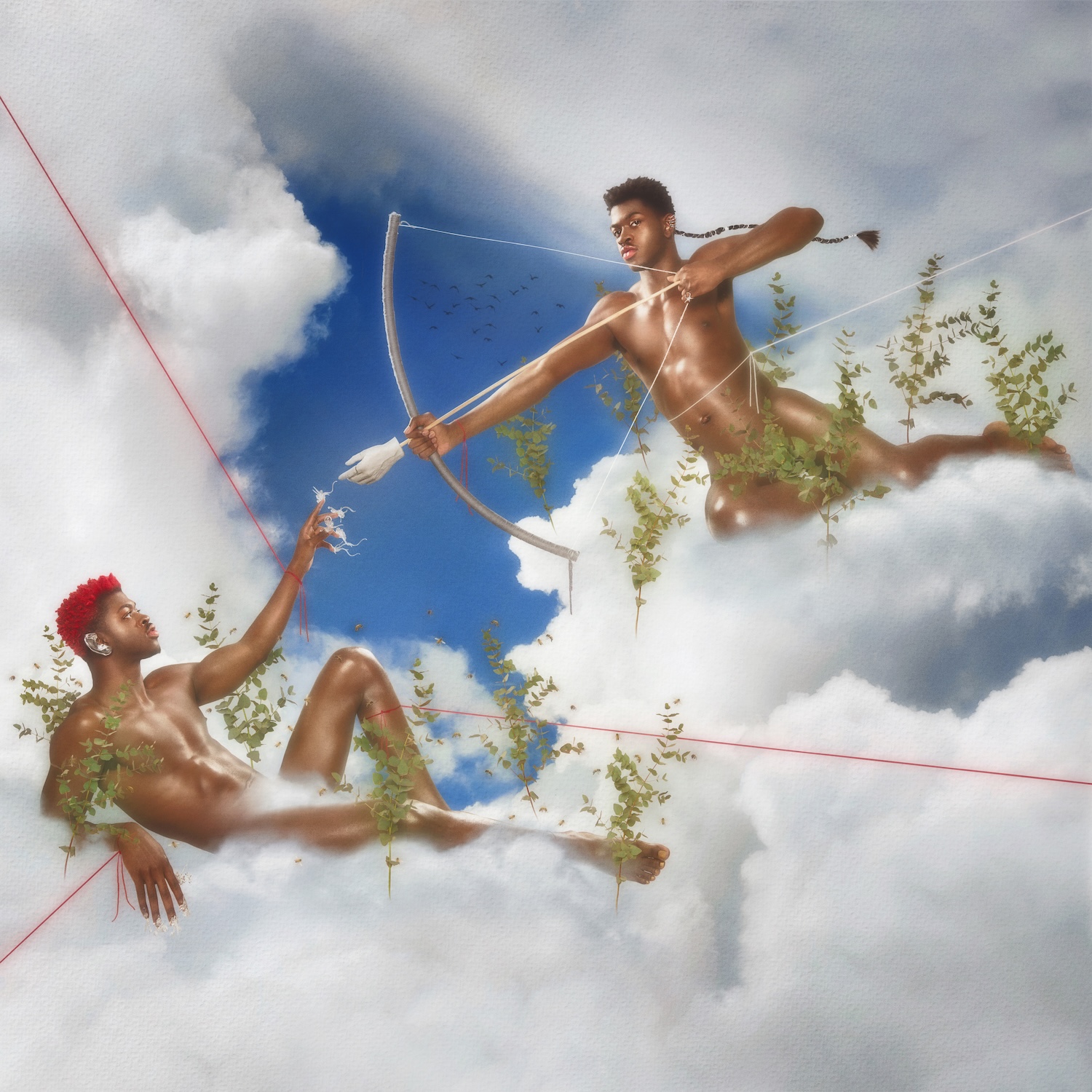Getting famous sucks. We all know this. We've heard the horror stories. We've seen the cautionary tales play out over a series of headlines. Your privacy vanishes. Any misstep can spiral into a viral ordeal. You start to wonder what new interlopers and even old friends want from you. As the late Christopher Wallace once told us, more money begets more problems. The perils of worldwide notoriety have long since become clichés. Yet watching some young pop star cope with newfound celebrity never ceases to be sobering.
That feeling certainly springs up over the course of director R.J. Cutler's new documentary Billie Eilish: The World's A Little Blurry, which traces Eilish's rapid rise from alt-pop wunderkind to music industry monolith. The movie premiered last Friday on AppleTV+, just weeks after Framing Britney Spears, another film about a young female pop star's struggle with fame, but there are some key differences. From a distance of decades, without the benefit of much inside story from Spears and her inner circle, Framing focused on the media's role in building her up only to repeatedly tear her down. It was a decidedly tragic story. Whereas Blurry remains up close and personal with Eilish and her family from start to finish. It arrives at what might turn out to be the peak of her fame, just a year after her historic Grammys sweep, as the world awaits her second album. And despite some dark moments, it leaves open the possibility that Eilish will turn out OK.
The World's A Little Blurry begins and ends with "Ocean Eyes," the synth ballad Eilish released to SoundCloud at age 13. At the start, we see her recording "Ocean Eyes" at home with her older brother Finneas, who wrote and produced it, and her excited disbelief upon hearing it on Santa Monica's renowned NPR affiliate KCRW. The movie's final shot frames her from behind, half a decade later, looking out into a sold-out arena as she performs the same song. Career-wise, Eilish's journey from point A to point B has essentially been one unbroken upward swoop, but her personal experience of that ascent has by no means been smooth. The rigors of touring have broken her body and sapped her spirit. The looming ambient threat of "the internet," with its potential to critique her every flaw, is a source of constant anxiety. So is the pressure to satisfy corporate overlords and her rabid fan base, living up to her role as a generational spokesperson while remaining authentic to herself. Eilish has shouldered these challenges with the help of her famously quirky and tight-knit family, based out of the same modest LA home she grew up in, buoyed by her free-spirit actor parents and Finneas, her brother, producer, and best friend.
It's one thing to imagine all this, and it's another to watch it play out. Cutler, a longtime documentarian who has gotten an inside look at Bill Clinton's presidential campaign (The War Room) and Anna Wintour's Vogue operation (The September Issue), was afforded a shocking degree of interior access. We see Billie and Finneas writing and recording her blockbuster debut album When We All Fall Asleep, Where Do We Go? in their now-famous bedroom studio. We see Eilish's mother's attempts to comfort and guide her, be it nagging her about rehabbing her injured ankle or pushing back against a handler who wants to tone down Eilish's anti-drug message in case she uses drugs later on. We see her father -- a man with tremendous facial hair and multiple Phoebe Bridgers T-shirts -- give a pep talk before her first time out driving alone. We see the slow, painful degradation of her romance with "Q," aka rapper 7: AMP, a relationship never revealed to the public before this movie.
The footage is so abundant, in fact, that the movie sprawls well beyond two hours, though it only occasionally dips into tedium. Cutler uses all that video skillfully, particularly some well-timed cuts that emphasize the peculiarity of Eilish's situation. At one point near the end of the film, rattled by one too many meet-and-greets, she unloads on her mom and the rest of her touring team while in transit. "I can't have one moment where I'm like, 'I don't want to do this,'" she laments. "All I hear is BILLIE BILLIE BILLIE BILLIE every second of my life." From there it's straight to another massive throng of phone-wielding fans seeking photos and autographs. After her breakup with Q -- who comes off terribly here, snubbing Eilish at Coachella and angrily punching a wall among other loser boyfriend behavior -- we see her onstage in New York performing "wish you were gay," her song about wanting to explain an ex's disinterest, and weeping during the breakup song "i love you." Perhaps most resonantly, we cut directly from 16-year-old Billie making the #1 hit "bad guy" to footage of her getting her learner's permit. It underlines just how young she was while recording When We All Fall Asleep, an album that cemented her place as a zeitgeist-shifting generational talent.
Much of the film's first act comprises studio footage like this, scenes of Eilish and Finneas carefully crafting "bury a friend" or stumbling into the banter that would become the album's introduction. Eilish maps out her "when the party's over" video shot for shot, directing her mother from behind the camera in their backyard. This is the most exciting phase of the movie, a window into the creation of songs that already feel like modern classics. It's similarly rewarding later on to see the Bond theme "No Time To Die" coming together on deadline on a tour bus in Texas. "I hate this! Why do people belt?" Eilish exclaims after a vocal take that requires volume beyond her customary whisper. "The internet's going to be mean if I do it." These creative segments consistently reveal her fear of being ridiculed by listeners -- common adolescent neuroses played out on an exponentially larger scale than your average high-school drama. They also reveal the powerful partnership between Billie and Finneas, who share an almost unnerving closeness. In his role as producer, he functions almost like a third parent, coaching and encouraging his little sister into following through on her inspiration while simultaneously trying to fulfill the label's request for a radio single.
Life gets rockier as the story moves beyond the safety of home, where Eilish's introversion and depressive tendencies clash with the demands of pop stardom. At what should be a triumphant Coachella performance, she is flustered when a video screen she had hoped would distract the audience's attention malfunctions, leaving her spotlighted at center stage. Afterwards, while inhaling from an oxygen tube, she is inconsolable about forgetting some lyrics and presumably disappointing her audience. Later on in Milan, having sprained her ankle while jumping around during the opening song "bad guy," she leaves the stage rather than put on an imperfect show; only after being coaxed by her crew does she return to play out the rest of the gig. "Are you ready for that next level of superstardom?" an interviewer asks her upon the release of her album, to which she replies, "No!"
These are familiar struggles, but Eilish's response to them is contrasted by some interactions with pop predecessors. At Coachella, she is greeted by Katy Perry and Orlando Bloom. (Eilish humorously doesn't recognize Bloom, his closely shorn haircut under a ballcap, until her camp explains to her that he was in the Pirates and Lord Of The Rings movies.) Perry, whose own tumultuous rise is chronicled in the documentary Part Of Me, offers, "This is gonna be wild for 10 years. This is gonna be weird. If you ever wanna talk..." Perry's gesture is genuinely kind, if not as heartwarming as Eilish's interactions with one-time crush Justin Bieber, who gives a lengthy hug when they meet and FaceTimes her on Grammys night to offer his warm congratulations. Notably, rather than engaging in the kind of outrageous misbehavior associated with Bieber's pre-marriage years, Eilish retreats further inward when overwhelmed by the pressures of celebrity. She comes off like a kid in over her head but not necessarily a cautionary tale, even if perhaps the slowdown necessitated by a global pandemic could not have come along at a better time for her.
The way Eilish holds it together is especially impressive considering the personal history she shares near the end of the movie. Throughout, there are allusions to the bummed-out nature of her music, which invented a new kind of pop in part by incorporating influences from sad and angry 2010s icons like Lana Del Rey and Tyler, The Creator. Early on, Eilish tells an audience, "You guys need to be fucking OK, cause y’all are the reason I’m OK, K?" and at one point her mother reasons that of course teenagers growing up in today's terrifying world are depressed. But not until the last half-hour do we see her discussing the self-harm she used to engage in as a younger teen and revealing old journal entries like "This blade can do so much" and "I am a void and the epitome of nothing." Given what a mindfuck fame can be, it's comforting to see her surrounded by her support system, celebrating her Grammy nominations in "the same stupid little backyard," as she affectionately refers to it.
In one of the final scenes, Eilish drives around in her matte black Dodge Challenger and attempts to lend herself some perspective: "I'm nominated for six Grammys, and I have my dream car, and Finneas has his dream car. I have my pooch doggie in the car. I had donuts last night. I'm not in a relationship, thank the lords. My relationship with my family is good. I am pretty, somewhat. I am famous... as fuck!" Finally, she whispers, "Life is good," and you almost believe her.

CHART WATCH
Morgan Wallen's racial slur incident has surely cost him some opportunities, but it hasn't stopped him from setting chart records. With 89,000 equivalent album units -- most of it via 80,000 streaming equivalent units, which amounts to 110.79 million on-demand track streams -- Dangerous: The Double Album remains #1 on the Billboard 200 for a seventh straight week. Per Billboard, it's the first country album to ever spend its first seven weeks at #1 and only the eighth country album to ever spend seven weeks at #1 overall. It's also the first album of any kind to spend seven consecutive weeks at #1 since Drake's Views in 2016.
Thanks to its new deluxe edition, Ariana Grande's Positions climbs back from #9 to #2, followed by Pop Smoke, Lil Durk, Pooh Shiesty, and the Weeknd. BTS' Be shoots back from #74 to #7, also thanks to a new deluxe edition. Dua Lipa, Luke Combs, and Lil Baby round out the top 10.
Also for a seventh straight week, Olivia Rodrigo's "Drivers License" remains #1 on the Hot 100. Per Billboard, only these songs have debuted at #1 and stayed there this long:
16 weeks, "One Sweet Day," Mariah Carey & Boyz II Men, 1995-96
14 weeks, "Candle in the Wind 1997"/"Something About the Way You Look Tonight," Elton John, 1997-98
11 weeks, "God's Plan," Drake, 2018
11 weeks, "I'll Be Missing You," Puff Daddy & Faith Evans feat. 112, 1997
10 weeks, "Hello," Adele, 2015-16
8 weeks, "Fantasy," Mariah Carey, 1995
Next up is Cardi B's "Up" at #2 and, at a new #3 peak, Chris Brown and Young Thug's "Go Crazy." It's Brown's highest charting single since "Forever" peaked at #2 in 2008. Ariana Grande's "34+35" is down to #4, followed by the Weeknd's "Blinding Lights" at #5. The latter has now spent 64 weeks on the chart, a record 51 weeks in the top 10, and a record 42 weeks in the top 5. Another Weeknd song, "Save Your Tears," is at #6, with 24kGoldn and Iann Dior's "Mood" at #7. Lil Tjay and 6LACK's "Calling My Phone" slides to #8, while Grande's "Positions" and Dua Lipa and DaBaby's "Levitating" round out the top 10.
POP FIVE
Nick Jonas - "Spaceman" & "This Is Heaven"
It felt like Nick Jonas' solo career got stale fast after "Jealous," but now that he's back at it, post-JoBros reunion, he seems to have his groove back. Not that the adult-contemporary-trap ballad "Spaceman" and the gospel-inflected, funk-tinged, saxophone-laced '80s pop throwback "This Is Heaven" are "Jealous" quality, but I can imagine hearing them on the radio and not turning it off. (I realize this is the faintest possible praise, but since Jonas is apparently trying to create the most dentist's office music possible, that's all the enthusiasm I can muster.)
https://youtube.com/watch?v=FUJC9SeS1u4
https://youtube.com/watch?v=7p9TzfI6WGM
Lauren Daigle - "Hold On To Me"
Contemporary Christian pop's leading balladeer is back with her first song since crossing over to the mainstream. It still sounds like Adele leading a worship service. I initially intended this to be a neutral statement, but the more I think about it I'd like to hear Adele rip into some of the worship songs of my youth, so I guess it is a positive assessment.
https://youtube.com/watch?v=RWua9o2KEv0
Elle King & Miranda Lambert - "Drunk (And I Don’t Wanna Go Home)"
Brilliant stuff here at the intersection King's sassy roots-rock shtick, Lambert's sassy country shtick, and the Nashville mainstream's constant drift toward arena rock. This may be end up being a top-10 pop song, country song, and rock song of 2021.
https://youtube.com/watch?v=CS9zbWLiI0o
J Balvin - "Ma' G"
Balvin is in that Drake territory now where I often find his songs generic at first only to have them sneak up on me later, so I am loathe to say anything beyond "this slaps."
https://youtube.com/watch?v=moFLjsO9TGA
Curtis Waters - "Conceited"
I like the fizzy pop side of Curtis Waters!
https://youtube.com/watch?v=xjqksOz7boI
NEWS IN BRIEF
- Ellie Goulding is pregnant. [Vogue]
- Victoria Monét had a baby. [Instagram]
- Olivia Rodrigo broke down "Drivers License" for NYT's Diary Of A Song series. [NYT]
- Lana Del Rey is working on a country covers album. [Contact]
- Maroon 5 and Megan Thee Stallion have a new single, "Beautiful Mistakes," out 3/3. [Instagram]
- Megan also channeled Regina George in a Mean Girls-inspired ad spot for Coach. [YouTube]
- Jack Harlow will be the musical guest on the Maya Rudolph-hosted SNL on 3/27. [Twitter]
- Taylor Swift officially cancelled her postponed Lover Fest shows, writing "This is an unprecedented pandemic," which, yes. [Twitter]
- J Balvin and Katy Perry will have new songs alongside Post Malone's Hootie & The Blowfish cover on Pokémon 25: The Album. [Billboard]
- Nominations were announced for the Academy Of Country Music Awards. Maren Morris and Chris Stapleton lead with six, Miranda Lambert received five, and Ashley McBryde and Thomas Rhett each got four. [ACM]
- A German radio station apologized after a DJ compared BTS to coronavirus. [USA Today]
- DJ Snake has a new Selena Gomez collab, "Selfish," coming 3/4. [Twitter]
- BLACKPINK’s Rosé teased her solo debut for release 3/12. [Twitter]
- Travis Scott drew a mob of fans at a West Hollywood newsstand when he launched limited edition merch celebrating his new i-D Magazine cover. [TMZ]
- Troye Sivan announced a line of Uniqlo t-shirts. [Uniqlo]
- Gus Dapperton released a cover of Bruce Springsteen's "I'm On Fire," so I guess he's officially an indie rocker now. [Spotify]
HOLD ON, WE'RE GOING HOME
Post Malone among Pokémon singing, “you thought that it was special, but it was just the sex though” pic.twitter.com/RM8GH2LAcy
— Gene Park (@GenePark) February 28, 2021






